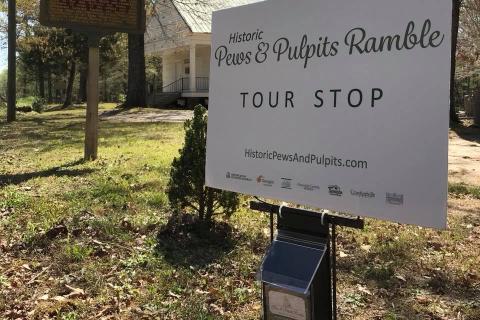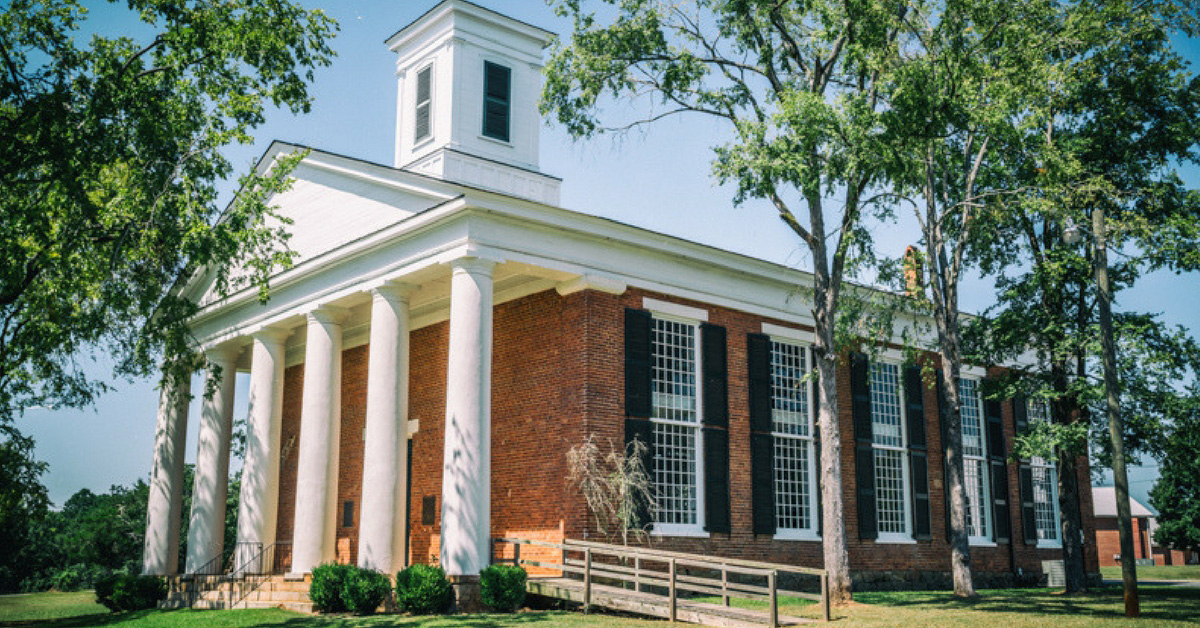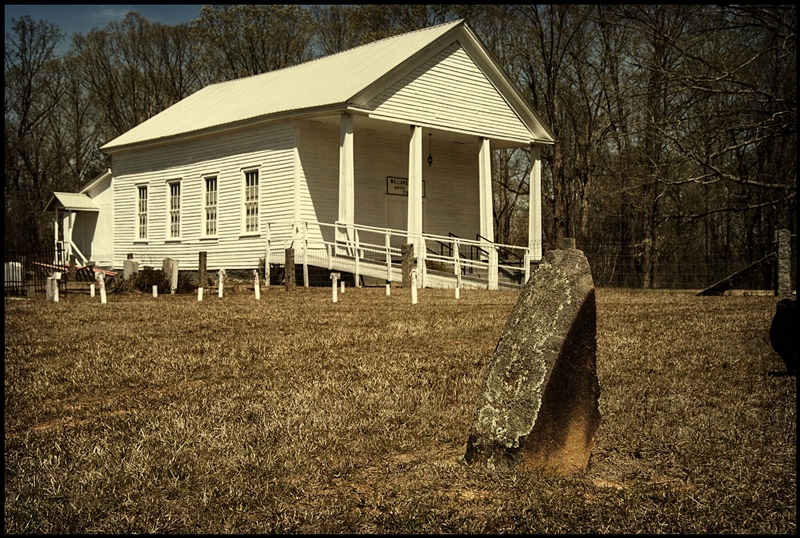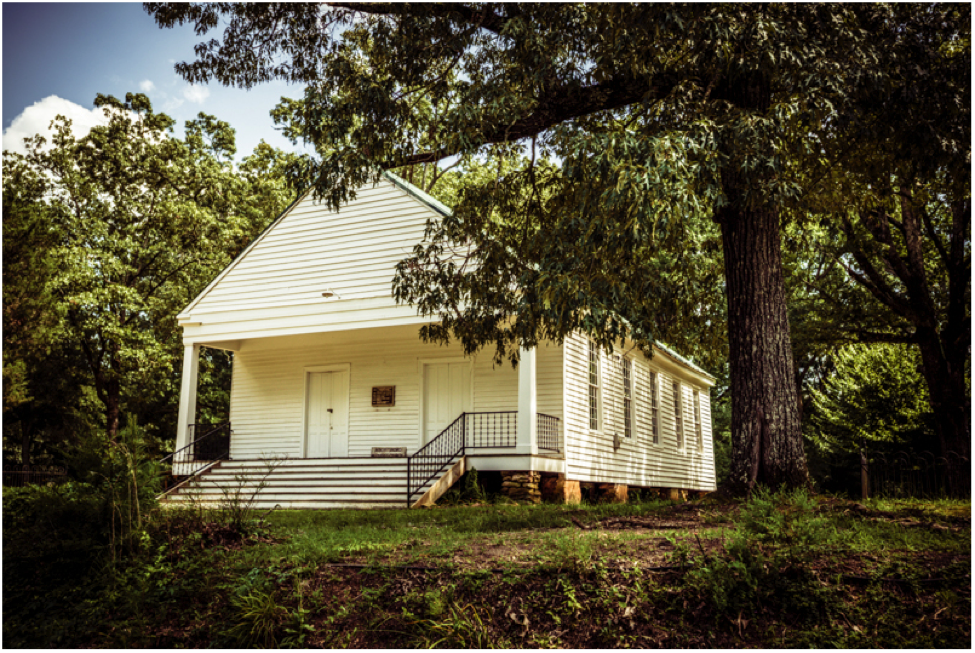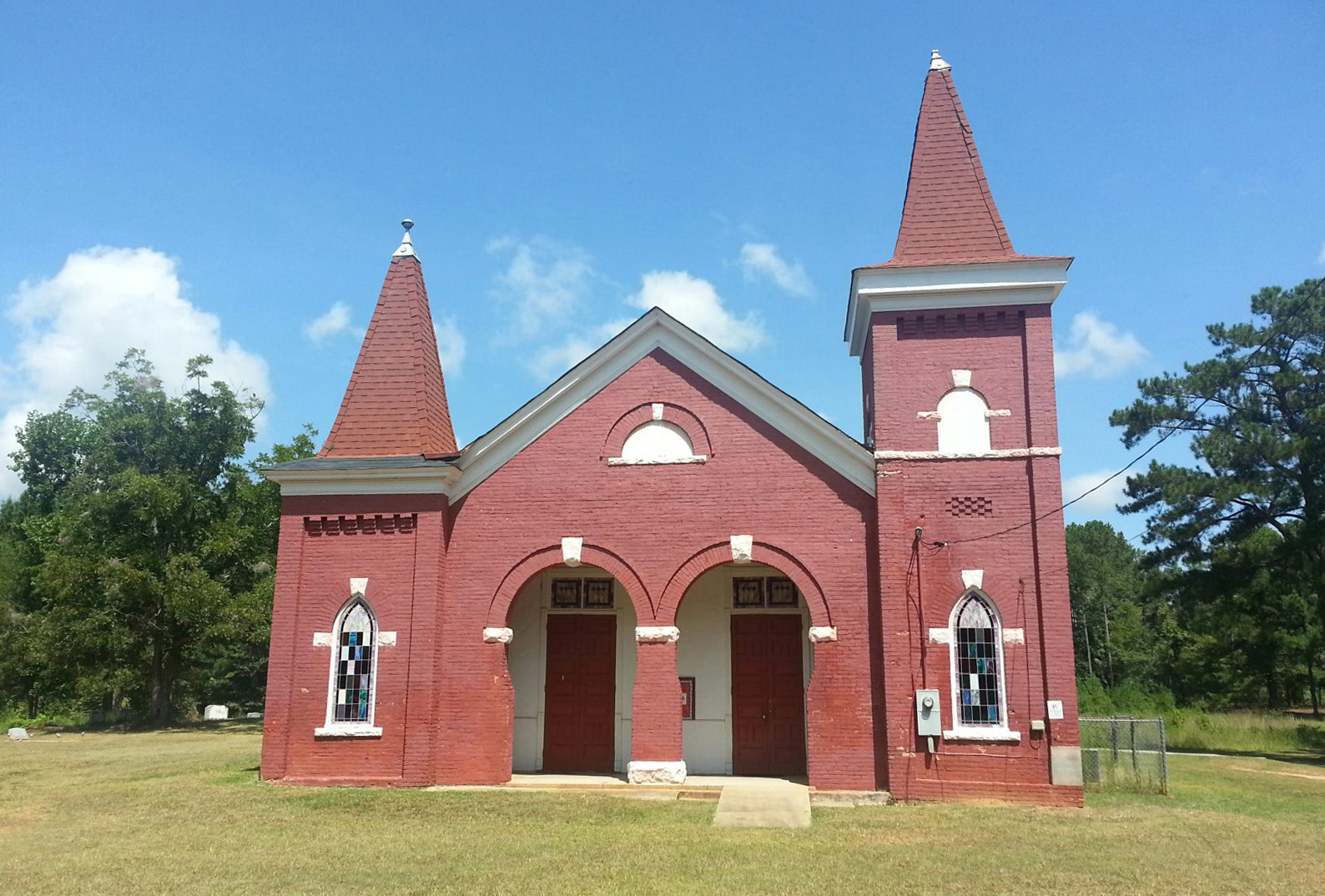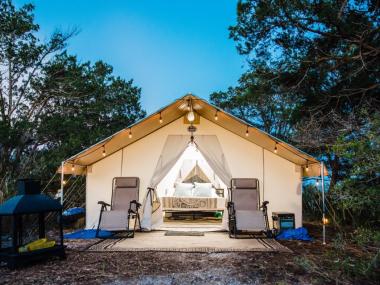Explore Rural Georgia Through the Pews & Pulpits Ramble
The country church, once a staple throughout the South, is having a hard time surviving. Younger members of the congregations want the programs of larger churches and modern conveniences, like air conditioning and padded seating.
But there is something about a historic country church. You can feel the community, the history, imagine the ordinary, everyday conversations, and hear echoes of the fiery sermons. Under the massive live oaks on the church lawn sit concrete headstones, a roll call of former parishioners, and a tangible display of prominent local families.
The Historic Pews and Pulpits Ramble through middle Georgia opens up these often hidden churches for visitors to see the beautiful craftsmanship, and learn a bit about the people who worshipped there. It’s an intimate history lesson, not often told.
All the churches on the Pews and Pulpits Ramble are located within Greene, Hancock, Taliaferro, McDuffie and Warren counties. Although small communities, there are enough churches to visit different ones during the twice-a-year event. Here are a few I visited during the fall ramble.
Penfield Baptist, Greensboro
This Greek revival church was originally constructed to serve as Mercer University’s Chapel. The University moved to Macon in 1871, and the church was given to the Penfield Baptist congregation. As you walk into the simple two-story building, you can smell the old wood. Giant windows with original chain balances remind you of the time before air conditioning. The loft, now used for air conditioning ductwork, was where slaves and later freed African Americans sat on Sundays.
Sharon Methodist, Crawfordville
This small church in Crawfordville was an offshoot of the Raytown Methodist Church, and is just two miles from the mother church. This cozy church is almost full with 30 people and has a beautiful curved ceiling with a Victorian era turret outside instead of a traditional steeple.
Williams Creek Baptist, Crawfordville
One mile down a dusty dirt road in Crawfordville, the brush parts, and this simple church can be found. It’s the 16th oldest church in Georgia and has a bit of a tawdry history that includes an excommunicated pastor. The large oaks provide the perfect place for a picnic lunch, which is exactly what we did on our tour. Those oaks have witnessed such gatherings since shortly after the Revolution.
Wrightsboro Methodist, Wrightsboro
This was my favorite church, and not because members of the community greeted us on the wide front porch with homemade coconut cake and brownies (although that didn’t hurt). Our host, Mr. Hawes spun tales of his ancestors, many whose graves are part of the family plot outside. He told us about Presidents Hoover, Nixon and Carter, who can trace their roots to this very church.
St. Mark AME, Sparta
This was the only African American church we visited on this tour, but certainly not the only one in this region. The interior has seen a lot of updates since it was founded in 1865, but the original ceiling is still a focal point. There are no supporting beams in the sanctuary. Everyday worship is a history lesson here. Services were held at 3 p.m. on Sunday so everyone could attend because many parishioners worked for the white residents in the community preparing and serving their Sunday suppers and didn’t get off work until the afternoon.
You can learn more about Georgia's rural churches on the Historic Rural Churches of Georgia website, and on the television series "Saving Grace" on Georgia Public Broadcasting.
